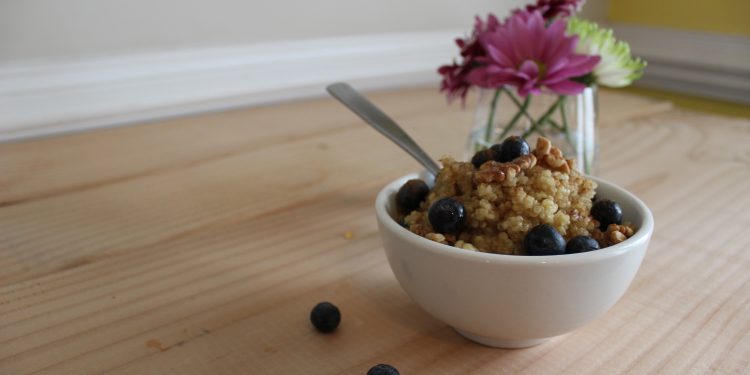bySierra Fawn Guay, MS, RDN, LDN, CBIS
Researchers around the world have worked to better understand the relationship between nutrition and cognition. Though this research is still in its infancy, a great deal of progress has been made over the past few years. In 2015, M. C. Morris and colleagues published research to show that a particular way of eating (referred to as the Mediterranean-DASH Intervention for Neurodegenerative Delay or MIND diet) may help preserve cognitive function with age. Though the data used in this study was collected from individuals with no or mild cognitive impairment, and not from those with traumatic brain injuries, the MIND diet presents a promising framework for improving brain health and longevity. Therefore, it is likely to be of great interest to survivors of traumatic brain injury.
The MIND diet is a hybrid of the popular Mediterranean diet and the Dietary Approaches to Stop Hypertension (DASH) diet, which are both used to improve heart health. The MIND diet is the first of its kind to address brain health, and incorporates components of the Mediterranean and DASH diets such as encouraging intake of vegetables and discouraging intake of red meats. Unique to the MIND diet is the specification to eat leafy green vegetables and berries. Additionally, the MIND diet recommends at least one serving of fish per week (compared to the Mediterranean diet which recommends six or more servings) and does not specify dairy intake (which is emphasized in the DASH diet).
The MIND diet encourages the consumption of several brain-healthy foods, which are: olive oil (used as the primary cooking oil), whole grains (at least three servings per day), green leafy vegetables (at least six servings per week), other vegetables (at least one serving per day), berries (at least two servings per week), fish (at least one serving per week), poultry (at least two servings per week), beans and legumes (at least three servings per week), nuts (at least five servings per week), and wine (one glass per day; note that alcohol may not be appropriate for survivors of brain injury and should only be consumed with physician approval).
The MIND diet encourages decreased consumption of several unhealthy foods, which are: red meats (fewer than four servings per week), fast and fried foods (less than one serving per week), butter and margarine (less than one tablespoon per day), cheese (less than one serving per week), and pastries and sweets (fewer than five servings per week).
To learn more about the MIND diet, refer to Dr. Morris’s book Diet For The Mind, which includes several brain-healthy recipes. Currently, more research is being done to help better understand the relationship between the MIND diet and cognition. One large clinical trial is expected to end in April 2021.
Interested in incorporating components of the MIND diet into your life? Try the recipe below to eat more whole grains, berries, and nuts!
Brain Healthy Breakfast Quinoa
Ingredients:
½ cup quinoa, rinsed
1 cup oat milk
1 tsp cinnamon
2 tbsp toasted pecans, chopped
¼ cup blueberries (or other berries)
Touch of maple syrup or honey
Instructions:
In a small sauce pan, add quinoa and oat milk. Bring to a boil. Reduce heat and simmer for 15 minutes or until quinoa is soft and outer germ has spiraled away from the seed. Remove from heat. Fluff with fork and transfer quinoa to a bowl. Mix cinnamon into quinoa. Top with remaining ingredients. Serve hot.
Enjoy!
What is quinoa?
Quinoa is an ancient grain that is easy to use in both sweet and savory recipes. Quinoa is rich in protein, vitamins, and minerals.
Sierra is a registered dietitian who works with brain injury survivors in Greenville, North Carolina.











